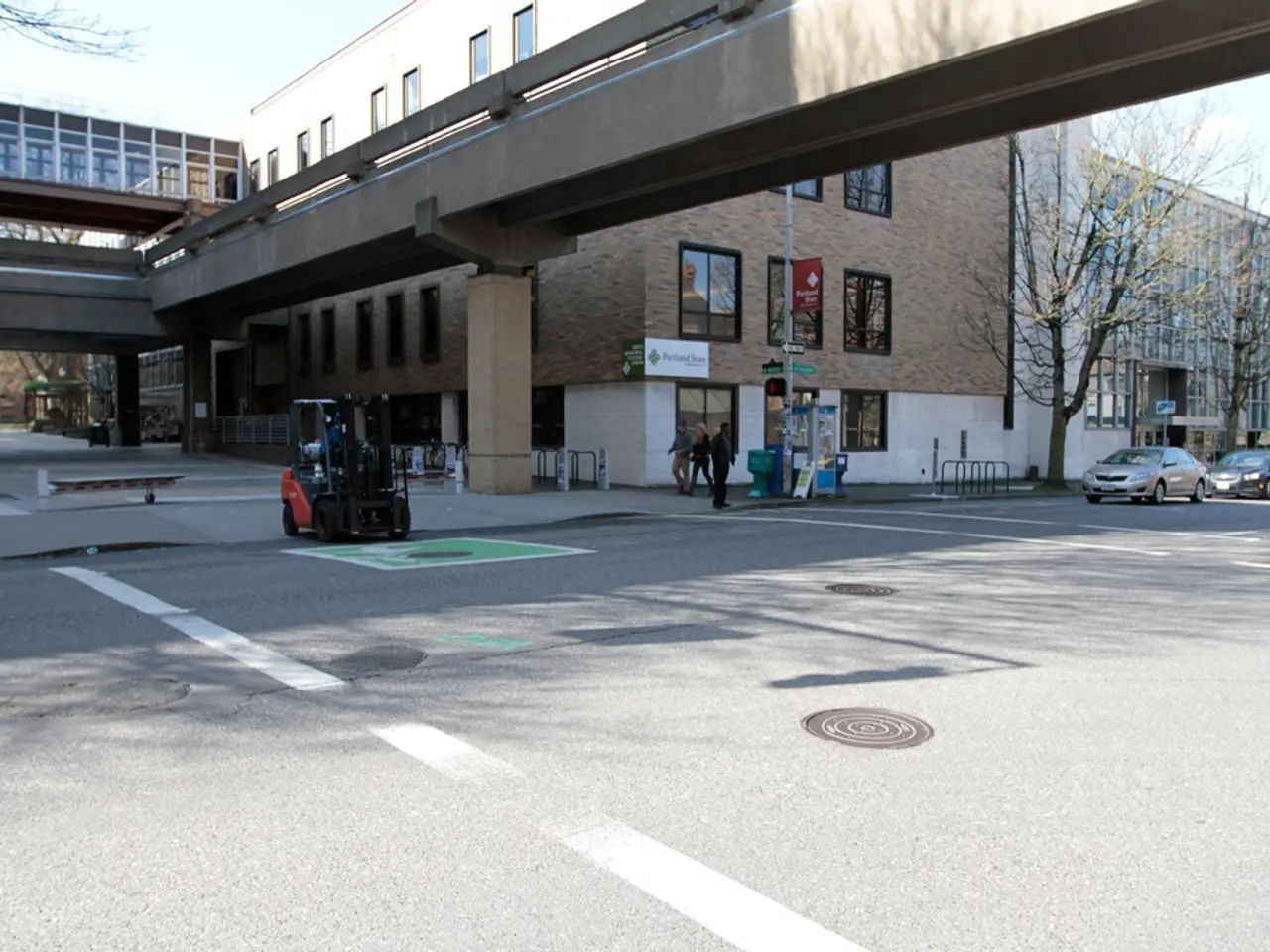Jews in Germany potentially under threat?
In a series of disturbing developments, German authorities have revealed that a Danish man of Afghan descent, aged 53, is suspected of spying on Jewish people and institutions in Berlin for an Iranian intelligence service. The suspect's arrest was made last week in Aarhus, Denmark, at the request of German authorities.
The Federal Prosecutor's Office is investigating the case, which allegedly involves a Syrian man who is said to have been driven by radical Islamic and anti-Semitic convictions. The suspect is accused of attempting to hire people for potential arson attacks and is believed to have taken photos of the headquarters of the German-Israeli Society, among other things.
The Federal Prosecutor's Office believes that the information gathered by the suspect could have been used to prepare potential attacks. Reinforced security measures for Jewish institutions have already been implemented due to the suspected spying activity.
The so-called Al-Kuds Brigades, the overseas unit of Iran's influential Revolutionary Guards, are believed to have given the order. The Al-Kuds Brigades are not a separate organisation but rather a well-known Palestinian armed militia linked to Palestinian Islamic Jihad (PIJ), a group that receives support from Iran, particularly through the Islamic Revolutionary Guard Corps (IRGC) and its elite Quds Force.
The Quds Force functions as the extraterritorial arm of the IRGC and is Iran's primary means of controlling and supporting proxy militias and partner groups across the Middle East, including Palestinian factions like the PIJ and Hamas. These groups operate as part of what Iran calls the "Axis of Resistance" against Israel and its allies.
The Danish man's spying likely serves Iranian intelligence objectives aligned with the Quds Force’s efforts to monitor and target Jewish and Israeli interests in Europe. This connection fits within Iran's broader proxy and intelligence framework, where the IRGC-Quds Force plays a central role in backing militant groups and conducting clandestine operations internationally.
The case follows a pattern of alleged attacks on Jewish and Israeli facilities in Germany. In February, a Russian was arrested at Berlin Brandenburg Airport for allegedly planning an attack on the Israeli embassy, and the case was later taken over by the Federal Prosecutor's Office. In October, a Libyan was arrested in Bernau near Berlin for allegedly planning to attack the Israeli embassy with firearms, but was later released due to insufficient evidence.
President of the Central Council of Jews, Josef Schuster, has called for active political action against the Iranian regime, while Dobrindt, the German Federal Minister of Transport and Digital Infrastructure, stated that the "abstract threat situation" in Germany is increasing due to the conflict in the Middle East. Several foreign services are said to have cooperated in this matter, according to Dobrindt.
The suspect is to be extradited to Germany and brought before the investigating judge of the Federal Court of Justice in Karlsruhe. The Federal Prosecutor's Office has intervened before in cases of suspected planned attacks on Jewish and Israeli facilities. Iran has rejected the espionage allegations, with the Iranian embassy in Berlin describing the accusations as "unfounded and dangerous."
- The Danish man's suspected spying activity adds to the growing concerns about migration, war-and-conflicts, and their impact on general-news and crime-and-justice in Europe.
- The Federal Prosecutor's Office's investigation into the case highlights the complex interplay of politics, radical ideologies, and intelligence activities in the context of Middle Eastern conflicts.
- The alleged spying incident involving the Danish man further underscores the need for increased international cooperation in addressing war-and-conflicts, politics, and crime-and-justice, particularly as they related to the security of Jewish communities in Europe.








